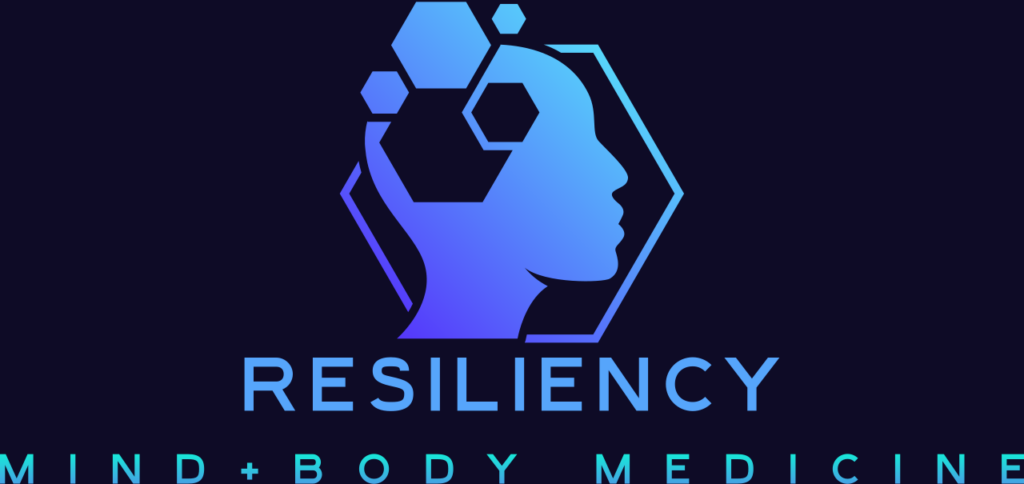By Stefani LaFrenierre, MD
Menopause is a natural phase in a woman’s life which marks the end of her reproductive years, although fertility often drops off years before menopause for most women. This transformative period is accompanied by hormonal shifts that can significantly impact both physical and mental well-being. In this blog post, we delve into the hormonal impacts of pre and post menopause and explore the mental health symptoms that women may experience during this phase of life. Additionally, we’ll provide dietary recommendations, hormone insights, and blood test recommendations to help women navigate the challenges associated with pre and post menopause.
Hormonal Changes During Menopause:
Menopause is defined by a decline in estrogen and progesterone production, leading to various physiological changes. In the pre-menopausal phase, hormone levels may fluctuate, causing irregular menstrual cycles and symptoms such as hot flashes and mood swings. As women transition into post-menopause, estrogen and progesterone levels remain consistently low.
The hormonal fluctuations during pre-menopause can contribute to mood swings, irritability, and anxiety. Additionally, the decline in estrogen levels is linked to an increased risk of depression. In post-menopause, women may experience persistent mood changes, cognitive decline, and a higher susceptibility to mental health disorders.
Mental Health Impacts:
- Mood Swings and Irritability: Fluctuating hormone levels, especially the decline in estrogen, can contribute to mood swings and irritability during menopause. Estrogen plays a role in regulating neurotransmitters like serotonin, which influence mood.
- Anxiety and Depression: Women undergoing menopause may be at an increased risk of anxiety and depression. Estrogen has neuroprotective effects, and its decline can impact brain function, potentially contributing to mood disorders.
- Sleep Disturbances: Hormonal changes during menopause can disrupt sleep patterns. Hot flashes, another common symptom, can lead to night sweats and insomnia, further impacting mental well-being.
- Cognitive Changes: Some women may experience cognitive changes, such as difficulty concentrating and memory lapses. This is often referred to as “menopausal fog” and may be related to hormonal fluctuations.
- Fatigue and Low Energy: Hormonal imbalances can contribute to fatigue and a general sense of low energy. Sleep disturbances and the overall impact on mood can exacerbate feelings of tiredness.
Average Age of Menopause and Pre-Menopause:
- Average Age of Menopause: The average age of natural menopause is around 51 years. However, menopause can occur anywhere between the ages of 45 and 55. Women who experience menopause before the age of 40 are considered to have early menopause.
- Average Age of Pre-Menopause: Pre-menopause refers to the years leading up to menopause when hormonal changes begin to occur. On average, pre-menopause can start in a woman’s 40s, typically around the age of 45. During this stage, menstrual cycles may become irregular, and symptoms such as hot flashes and mood swings may begin.
It’s important to note that these ages are averages, and individual experiences can vary. Some women may enter menopause earlier or later than the average age, and the duration of pre-menopause can also vary.
Dietary Recommendations:
Adopting a balanced and nutritious diet is crucial for managing hormonal changes and supporting mental health during menopause. Include foods rich in omega-3 fatty acids, such as fatty fish, flaxseeds, and walnuts, to promote brain health and alleviate mood swings. Calcium-rich foods like dairy products, leafy greens, and fortified plant-based milk can help maintain bone health, which is often compromised during menopause. Supplements like vitamin D3 and calcium may be recommended.
Incorporating phytoestrogens, found in soy products, lentils, and whole grains, may help mitigate the effects of declining estrogen levels. Moreover, a diet high in antioxidants, obtained from fruits and vegetables, can protect the brain and support overall well-being.
Hormone Recommendations:
Hormone replacement therapy (HRT) is a common approach to manage hormonal imbalances during menopause. Estrogen therapy can alleviate symptoms like hot flashes and improve mood, but it’s essential to discuss the potential risks and benefits with a healthcare provider. Bioidentical hormones, which have a molecular structure identical to the body’s own hormones, are also an option for some women.
It’s crucial to note that hormone therapies should be tailored to individual needs, and regular monitoring by a healthcare professional is essential to ensure safety and effectiveness.
Blood Test Recommendations:
Regular blood tests can provide valuable insights into hormone levels and overall health during menopause. Testing for estrogen, progesterone, FSH, LH, and thyroid hormones can help assess hormonal balance. Additionally, checking vitamin D and B12 levels is important, as deficiencies in these vitamins can contribute to mood disorders and fatigue.
Conclusion:
Menopause is a transformative journey that impacts women both physically and mentally. By understanding the hormonal changes associated with pre and post menopause, women can take proactive steps to manage their mental health. Adopting a balanced diet, considering hormone replacement therapy under professional guidance, and undergoing regular blood tests are integral components of a comprehensive approach to navigating the challenges of menopause. As women embrace this new phase of life, prioritizing their mental well-being becomes a cornerstone for a healthy and fulfilling future.



